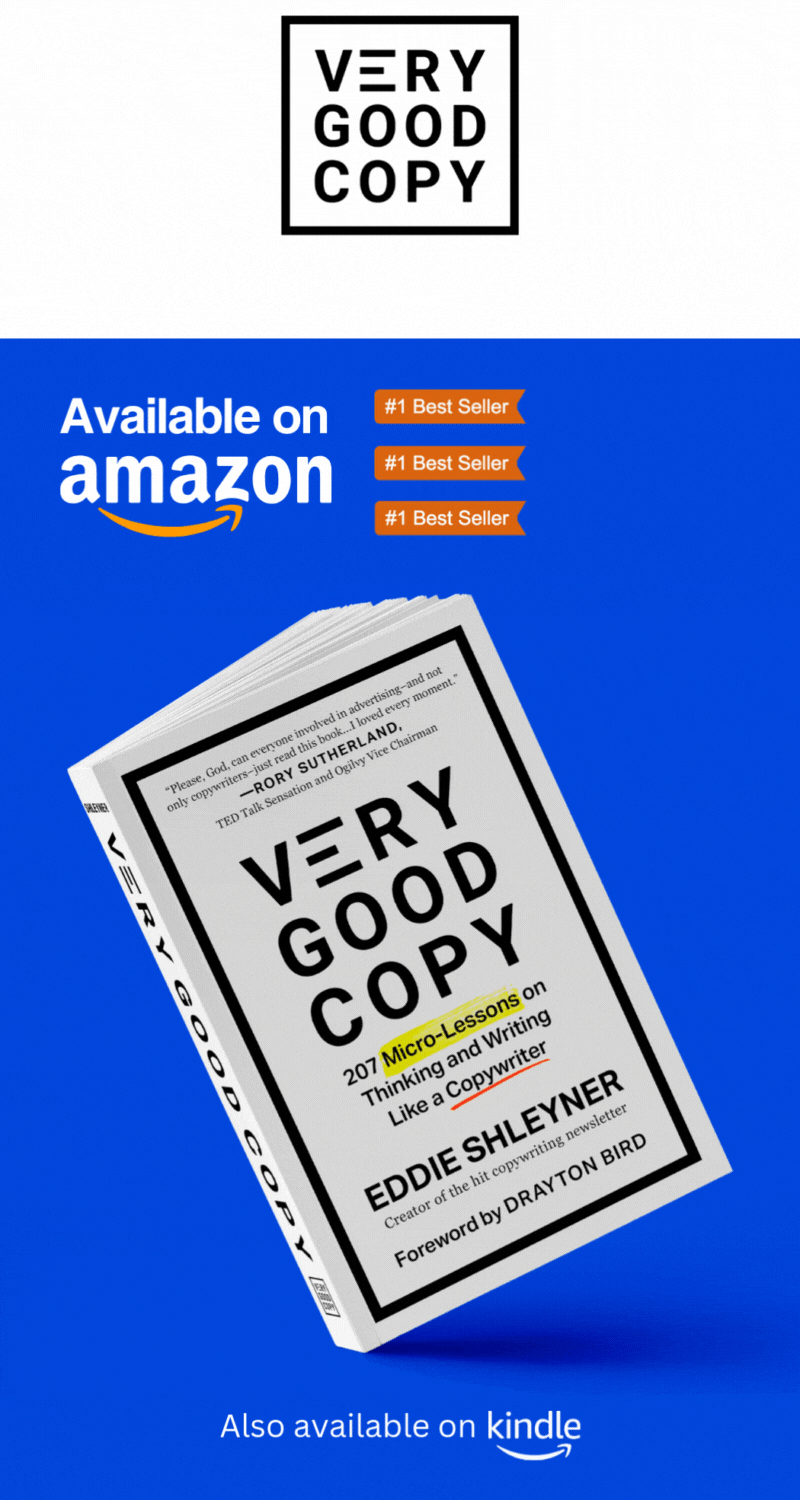EDITOR’S NOTE:
Over the last decade, Justin Welsh has helped build two $50M+ ARR companies, teams of 150+ people, and raise over $300M in venture capital. Now he's building a portfolio of one-person businesses to $5M in revenue.
Outside of that, he’s an advisor to early-stage SMB SaaS companies, a mentor to entrepreneurs at 500 Startups, and an LP at GTM Fund, a rolling fund investing $4 million per year into early-stage B2B SaaS companies.
In only 646 words, Justin shares:
One of the most effective ways to burn out
The weekly routine he uses to manage 4 businesses
3 specific habits he cultivated to help shorten his learning curve
And more…
Enjoy!
Instantly get 6 “micro” courses and series about copywriting when you subscribe to the VeryGoodCopy newsletter for free. Plus...enjoy new content every week. Learn more →
Thank you, Justin.
Let’s get started:
1) “What’s your work routine?”
Because I manage 4 different businesses, having a structured week is extremely important:
I generally use Monday mornings for planning to ensure that my week is set up for success. Monday afternoons are spent writing and creating content for social media, which powers the top of the funnel for my different businesses.
Tuesdays through Thursdays in the AM are also used for creative writing time, because I'm most creative in the morning. The afternoons are spent meeting with clients for my SaaS advising business.
Every Friday, I write my newsletter called The Saturday Solopreneur, and queue it up for delivery on Saturday morning.
Sundays are spent relaxing and recharging.
2) “What do you know about your work now that you wish you’d known when you first started?”
I wish I knew how important it was to say "no" to nearly everything.
When you're just getting started, everything sounds important. Every single podcast, speaking event, webinar, questions via DM, email, etc. They all feel urgent and necessary. You start to build a habit that's difficult to break, especially as you gain more traction.
If you can't figure out how to say no to more things, you run the risk of constantly burning out.
3) “What did your biggest professional failure teach you?”
My biggest professional failure was my inability to take my former company, PatientPop, to IPO.
That was my dream, but I crashed and burned out hard after getting to about $51M in ARR. It taught me that we all have ceilings, and we all need to delegate effectively in order to keep from burning out. The more traction I get in my current job, the more I realize I can't do this on my own.
Finding top-notch people to outsource and delegate to is such a key component of any business.
4) “What’s the #1 thing that has helped you shorten your craft’s learning curve?”
In order to shorten my learning curve for building online business, I've done a few things that have been extremely helpful:
1) Studied those who are a few steps ahead of me instead of reading about the typical entrepreneurs like Jeff Bezos, Elon Musk and Bill Gates.
2) Joined incredible private Discord and Slack communities that allow me to work with peers in the space to improve my skills.
3) Purchased online courses to help learn a skill that I know is important, in a shorter amount of time.
5) “What book has helped you the most over your career?”
It's cliché, but I really love The 4-hour Workweek.
It's not because I learned any specific systems or processes from the book, nor do I find it as relevant today as it was when it was written. However, I revisit the book once a year to remember why I'm doing what I'm doing. To remind myself of the importance of creating a life I want to live.
6) “And your parting piece of advice?”
If you really want to succeed, there are a few pieces of advice that I believe are timeless:
1. Play the long game: Nothing worth achieving happens overnight, no matter what you hear or read on the internet.
2. Invest in yourself: There is no better spend of your money than on yourself. Books, podcasts, courses, private communities, products, coaches, mentors, whatever. The dollars you spend on becoming better at your craft, are usually a 100x ROI.
3. Ignore noise: The world is set up to keep you distracted. Politics, arguing, Twitter trends, etc. It's all just noise. There will be different noise tomorrow. If you can't ever ignore it, you're going to have a hard time moving yourself forward.
4. Get started: I've never learned more about business than when I just started. At some point you need to stop reading about it and throw your hat in the ring. That's where the real learning happens.





